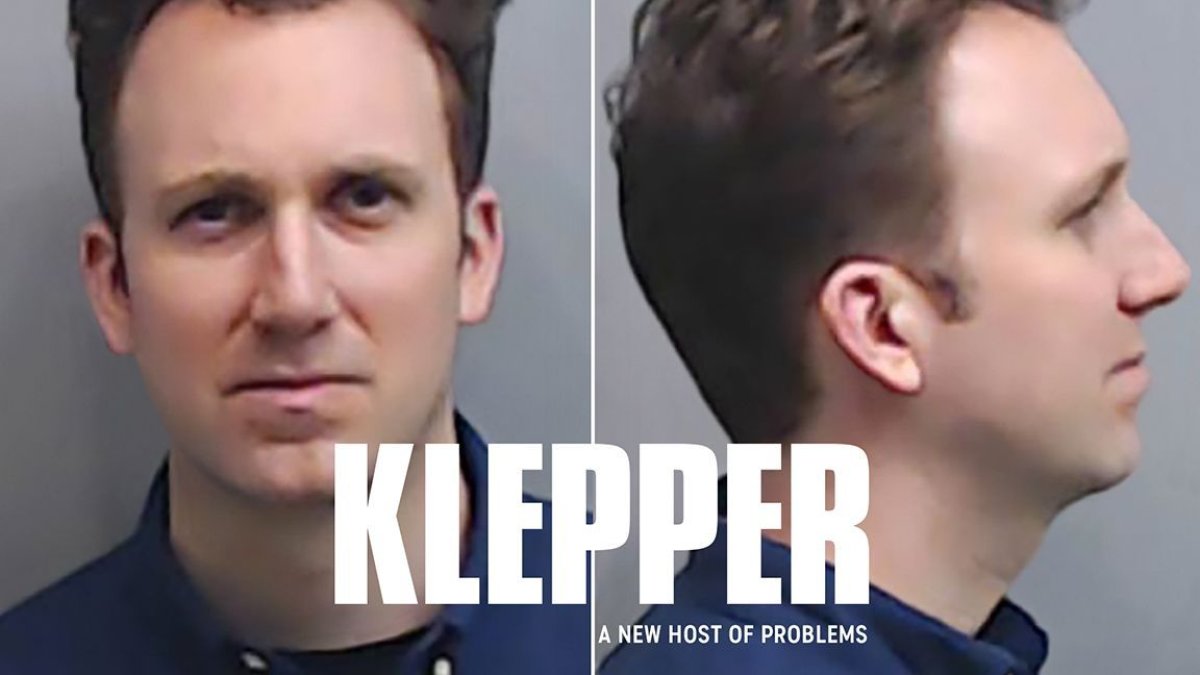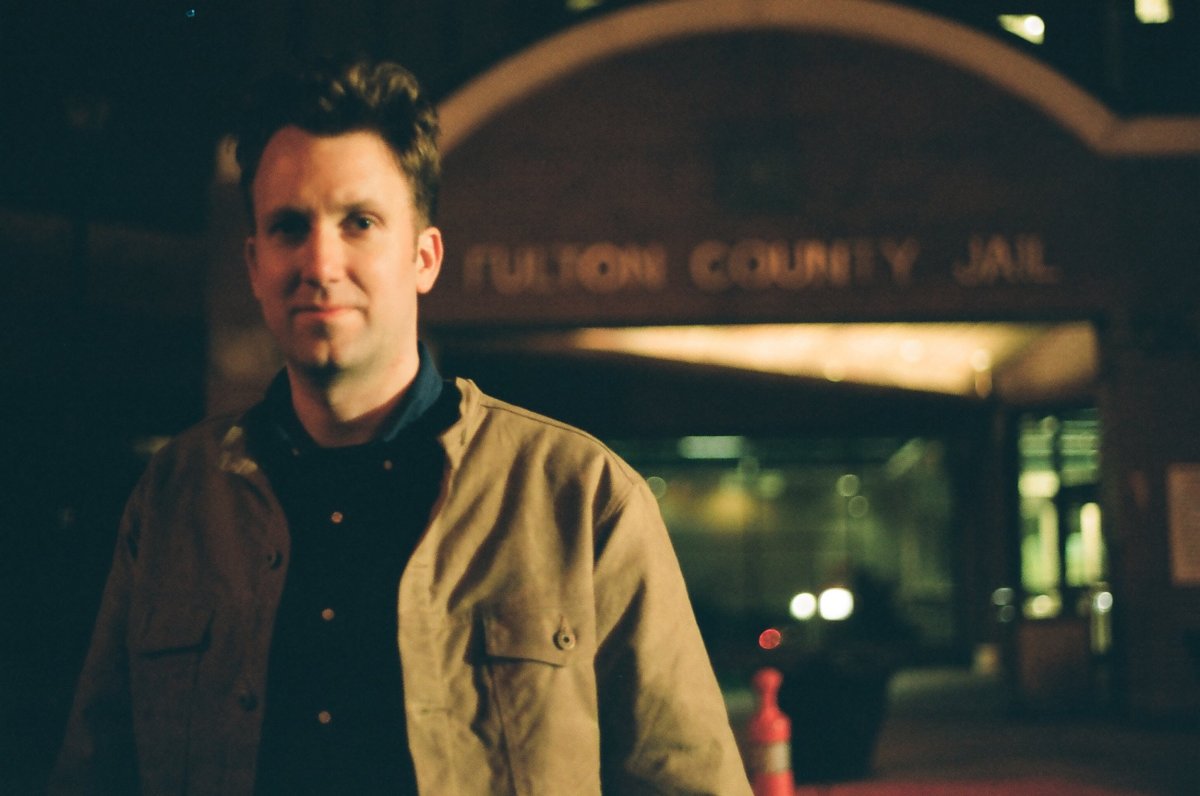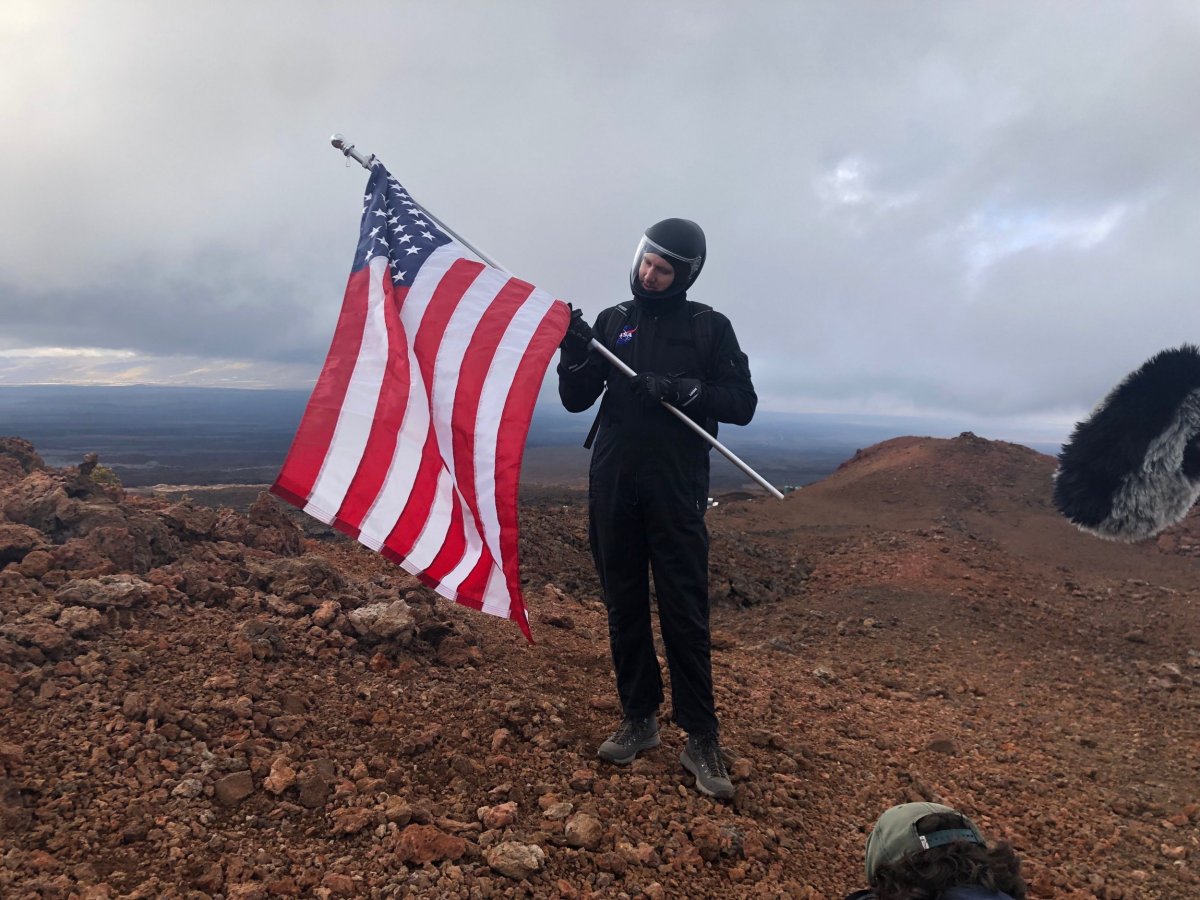After Comedy Central's The Opposition with Jordan Klepper ended last year, the Michigan-born comedian-turned-political talk show host felt worn out by Donald Trump fatigue. Klepper had covered countless Trump rallies in 2016 as a correspondent for The Daily Show before then spending almost a year masquerading as an alt-right conservative host tackling current events every night through unhinged satire.
But as news elements on television increasingly moved towards highlighting political differences and tensions, a burnt-out Klepper wanted to get back into the field, this time to promote greater understanding. "I really craved stories that show people coming together despite the partisan binary lines that we're drawing," Klepper tells Newsweek. "I think seeing those kinds of connections are important right now. There needs to be more gray areas."
In his new Comedy Central documentary series, Klepper leaves his desk job to embed himself into different grassroots movements across America. He dedicates solo-topic, roughly half-hour episodes to various — often obscure — people-led causes from metropolitan cities to the remote corners of the country's most southern states. Klepper's pursuit of authenticity sees the host getting arrested in Atlanta while protesting on behalf of undocumented students, sinking a boat in the bayou with environmental activists, interviewing Texas veterans who've turned to wrestling for PTSD relief and convincing Hillary Clinton to perform dramatic readings of excerpts from special counsel Robert Mueller's report.
Although this isn't your typical joke-laced Comedy Central series, its humor shines through moments of discomfort as Klepper realizes time and time again how serious his subject matters are and how difficult it is to actually enact change.
"I thought this was all supposed to be fake," Klepper moans in one episode after being karate chopped in the chest by a hefty veteran teaching him to wrestle.
"Every element is uncomfortable. Why would I want to save this place?" he thinks out loud in another after joining pipeline protestors camped out in a swamp.

This interview has been shortened for brevity.
Jordan, congrats on Klepper! How would you describe the show?
I basically left the comforts of home and I went out into America and walked in people's shoes for a little while. The idea was that I wanted to get out into the field, tell some stories and get up close with people. We realized what was most engaging for us was embedding ourselves into some of these movements, some of these activists groups. I wanted to do more than just comment on what's happening; I wanted to actually see it. That was sort of the genesis.
What we found is that it's really hard and I think that's what's so compelling about the show. Across the spectrum, the people that we talked to, no matter what they politically believed, were all fighters. This show is me going to these fighters across the country and seeing up close what they're fighting for.
I'm almost the imperfect narrator here. Somebody who wants to do good but doesn't know exactly how. I think that tends to be the journey of a lot of these episodes. I'd like to do good, good is difficult, good is hard, there's smarter people out there doing it and hopefully we can highlight that difficulty, but also we can tell some stories that aren't being told.
Did you have rigid guidelines for each episode of the show or did the series develop organically?
In the beginning, we were looking for a theme on what types of stories we would tell. The initial theme we stumbled upon was this idea of tribalism. We planned on telling stories based around these groups that we define ourselves by. But as we started filming, we realized that tribalism wasn't exactly what we should have been aiming for.
As we started to talk to people, they were less identifying with the groups they were a part of and more identifying with the cause they were fighting for. So we started to build it around that. Where are some places people are actually taking action and how can I be a part of it.
The issues tackled in the series are pretty obscure and specific. There's an episode about deported veterans, another on an environmental protest in the bayou and Native American representation. What requirements do you set when exploring potential subject matters?
It starts with topics and ideas that personally resonates with me and other people that work in this office. We really wanted to find human voices, so it's not just generic. We covered stories that had already happened for The Daily Show and The Opposition but for this one, we really were trying to be a part of it. We wanted to tell important stories but in the end, we are on a comedy network. The humor often came out of how difficult some of these movements are. The deported vets [episode] is a good example. We found out we were deporting veterans in America and that was shocking to everyone in this office. [The story] really clicked for us when we discovered one person who bought an RV, put his face across it and was driving around the country trying to draw attention to the issue. From that, we can start to build an episode.
Do you think you're crossing over into journalism? Or would you say you're still strictly a comedian?
I am a comedian. The term we've come up with is a "documenartisan," somewhat an artisan mixed with a documentarian. Even coming from The Daily Show, you get that question a lot: Are you guys doing journalistic work?
I think it's important to know that we rely on great journalists who are drawing attention to these stories. We have a research department, we are constantly trying to tell the most accurate story we can, but I think the stories we tell is from the perspective of a citizen. I rely on great journalists but entered into all these stories as a comedian first.

In Klepper, you move away from your usual political commentary.
I really craved stories that show people coming together despite the partisan binary lines that we're drawing. When I was spending time with these veterans in Texas who were dealing with PTSD through wrestling, I quickly realized that they're in a political climate that's very different to New York. We don't talk about politics down there. What we're talking about is guys who are dealing and struggling with an issue. We talk about how they do that. We talk about how they do wrestling and how it's like theatre, in the way that I do theatre back here. We were able to find a connection that was outside some of that partisan bickering.
I think seeing those kinds of connections are important right now. Our docuseries will hopefully showing you a three-dimensional portrait of other Americans you're not often exposed to. If you can get three dimensions in this day and age, you're doing something. There needs to be more grey areas. We need to be able to see more of those.
You were arrested in Atlanta in February for protesting on behalf of undocumented students. Tell me the story behind that.
That story was based around Freedom University in Atlanta, this underground modern-day freedom school for undocumented students. Georgia has some really strict rules that don't allow undocumented and DACA students to go to some of the major universities there. Local teachers and professors on weekends are teaching these students at undisclosed locations because they're being attacked by hate groups who are trying to find where they are. We heard about this story from the New Yorker and couldn't believe it was happening in America in 2019.
I went down there and spent some time with these students and really was moved by the stories that they told, their desire to learn and better their community and the lengths they had to go to get a basic education. I was a part of their learning experience for multiple weekends and I attended one of the events, which was the Board of Regents meeting where people made decisions as to whether or not to allow these students to go to public universities. I protested with other fake leaders at the time.
At the meeting, one of the pastors stood and began a prayer. This prayer was to look out for all of the students in Georgia and to give them the right to learn just like everybody else. Another pastor stood up and began to pray for everyone there as well. I stood up and [said something]. At that point, I was escorted out by the police in a very orderly fashion, as were the other pastors and teachers and we were brought into a side room, where we continued that prayer. They made it very clear if we continued they would have to arrest us. We continued. They handcuffed us and took us out into the squad cars. The rest of that day was getting taken around Atlanta to finally enter into a Fulton County Jail where I spent a good twelve hours being stripped searched, running through the ups and downs of background information, go to this cell or this cell. I spent a good six hours in the cell with a bunch of other faith leaders. It was an odd, surreal situation.
In hindsight, how you feel about being jailed?
It was an opportunity, no matter how small, to draw some attention to these students who sadly didn't have a voice and I was happy to do that. I'm 40. I've done a lot of comedies, I've been a part of the political spectrum for quite some time, but I've never been pushed to that degree and It's been really moving to be a part of these movements. Some groups of people don't have a voice right now. People are putting their neck out there because they aren't feeling heard. It organically came up and was a way in which I could help their story and amplify their voice.
Do you think your examination of issues through a comedy documentary lense is a good way to reach more audiences with your message?
It was a weird challenge for us. What the network wanted and what we wanted was authenticity. Satire through The Daily Show, and through a lot of modern comedy approaching these difficult topics, is drenched with irony and distance. With this, we wanted to throw out some of those elements. It did provide a big challenge when you're in certain situations.
Was it difficult improvising humor in such serious and tough situations?
We wanted to strip away me just being perhaps a dummy or too sarcastic. There's, of course, times where I will be sarcastic or joke around with people but we wanted to find humor in different moments. Sometimes there are comedic moments where you're laughing at me.
When you see me sink a boat, I'm hanging out in the middle of the bayou waiting to get picked up. I look angry and like I wanna be somewhere else. That is authentic. You are getting somebody who doesn't want to make a joke, who doesn't want to be where he is, who's really frustrated at his producers, who's really frustrated at life in general, I think we were able to really capture me in my essence with stuff like that. Some might find it funny. And some certain situations are not funny and they don't deserve a joke.

Your background lies in improv comedy. How did you get into political fieldwork from that?
I got into the improv world in college and was enamored with performance through improvisation. It sent me to Chicago with The Second City [an improvisational comedy club]. I fell in love with the idea of making something out of nothing and the story behind improvisation; the collaboration and building up of ideas. Then I spent almost a decade in Chicago teaching improvisation and touring with The Second City.
After that, I moved to New York with my wife to teach and perform at the Upright Citizens Brigade. Finally, The Daily Show saw some of the work I had done, called me in and auditioned me to become a correspondent. A lot of that stuff in the field is improvisational in nature. Improv teaches you to listen, to build, to craft out of what is in the moment and that's sort of what the job of The Daily Show was. When you're in the field you find humor and perspective in that moment, and then when you are in the studio, can you build and write something fast, quick, today and not be precious.
Do you feel a responsibility to remain impartial in your coverage?
I don't approach the stories we cover from a political point of view, we approach it from my own point of view. Calling bullshit where you see it. I gotta say, there's a lot of bullshit on the right and especially on the far-right and I see how dangerous it is. I don't see that as a Democratic stance, I see that as a rationalist stance. One of the understandings, when you are a comedian, is that you're entering into issues with your own biases. In some ways, people respond to that because they at least know, you're not pretending to be just completely objective. I have biases. I have things that I believe. I'm going to put them out there but I enter into the pieces with an openness to be changed or pushed back upon.
You covered Trump's 2016 campaign for The Daily Show, what was the most interesting thing you observed from attending those rallies?
Trump rallies have always been a unique part of my time at The Daily Show. It started out as what we thought would be going to rally with a presidential candidate. We didn't know how long he was going to be in the race. Right off the bat, they didn't feel like rallies. They felt like concerts.
What became so frightening to me was over time what felt somewhat like a novelty became a religion and then it became a way in which to craft reality. I was frustrated in the end by Trump's conspiracy theories - this is what inspired doing The Opposition. There was a sense of distrust that was automatically there and it was terrifying. The idea that [former President] Barack Obama was not born in America was fringe at the beginning of those campaigns and I when I talked to people, hearing something like would have been a rarity. Near the end of the campaign, that was something coming out of everybody's mouth. It was assumed that we all believe this now. It was no longer embarrassing to think that.
I don't think it was necessarily that everybody changed their mind on that, I think there was just permission for some of these ideas to be normalized. That became a little bit scary to watch as there was a brazen attitude of discrediting common facts. It was hidden before and by the end it was all out in the open.
How has your approach towards comedy changed under the Trump administration?
I did three very specific jobs under the Trump administration, one where I was a correspondent on The Daily Show playing a sarcastic newsman. In The Opposition, I played an alt-right character dealing with the chaos of the Trump administration by heightening his points of view. This third phase I'm just me. I started with irony then switched to straight on satire from a far-right point of view. Now, he has stripped me of all ability to use irony or sarcasm and now I just have to be myself. I'm naked Jordan who's like, "Let me respond with trying to connect with humans again." I'm reaching for empathy and human connection, which is how a lot of humans have been getting through this administration. By the end, feeling worn down, broken, but hopefully we still have that American spirit.
Klepper premieres Thursday, May 9 at 10 p.m. ET/PT on Comedy Central.
Uncommon Knowledge
Newsweek is committed to challenging conventional wisdom and finding connections in the search for common ground.
Newsweek is committed to challenging conventional wisdom and finding connections in the search for common ground.
About the writer
To read how Newsweek uses AI as a newsroom tool, Click here.








